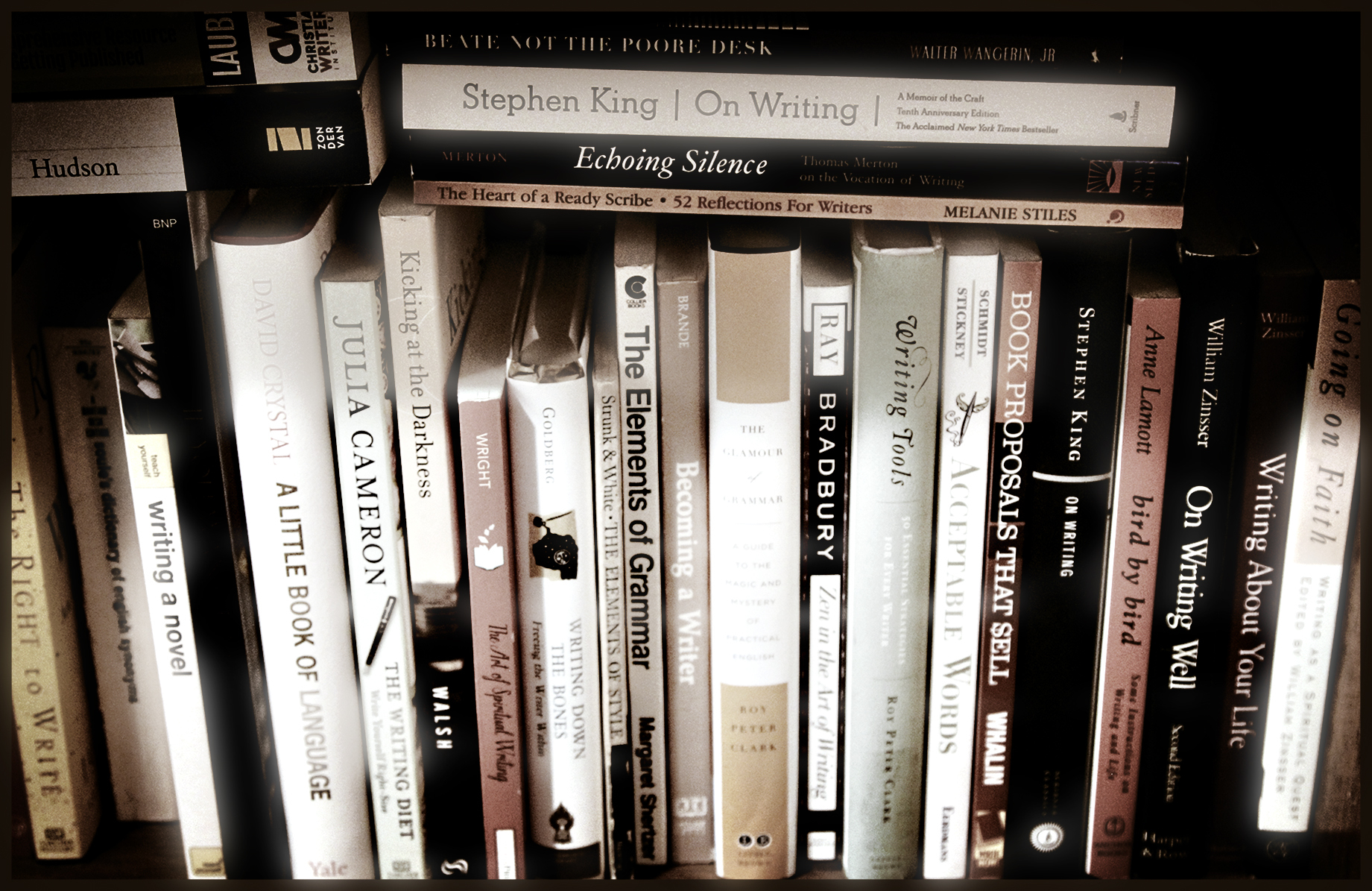As a writer, I find that almost every book I read—and certainly every good one—feeds my creative well with cold, clear water from which I can later draw in my own work. But sometimes I need something specific to my vocation, a book to inspire me to keep on putting words on paper…and to show me how. To that end, I’ve compiled a few books for the writers on your holiday gift list or, if you are the writer, a few books to add to your wish list. Happy reading!
The Elements of Style by William Strunk, Jr., and E.B. White, illustrated by Maira Kalman.
This is the go-to reference books for writers. I’m on my second copy. Beginning with Elementary Rules of Usage (which too many writers never learn) and Principles of Composition (including the famous and too often unheeded rule 17: omit needless words), Strunk and White go on to tackle A Few Matters of Form and An Approach to Style. In all of these instructions, they practice what they preach and thus show, not simply tell, how to write well. If you possibly can, get the edition with Maira Kalman’s whimsical illustrations sprinkled amidst Strunk and White’s hefty advice.
“What you are, rather than what you know, will at last determine your style. If you write, you must believe—in the truth and worth of the scrawl, in the ability of the reader to receive and decode the message. No one can write decently who is distrustful of the reader’s intelligence, or whose attitude is patronizing….Your concern for the reader must be pure: you must sympathize with the reader’s plight…but never seek to know the reader’s wants. Your whole duty as a writer is to please and satisfy yourself, and the true writer always plays to an audience of one.” — William Strunk, Jr., and E.B. White, The Elements of Style
A Syllable of Water: Twenty Writers of Faith Reflect on Their Art, edited by Emilie Griffin
This book of 20 essays by writers who work in a variety of genres begins at the beginning: with process, place, journaling, reading, faith, and the darkness of doubt. Then come the genre essays: Virginia Stem Owens on memoir, Scott Cairns on poetry, Richard Foster on spiritual writing, Eugene Peterson on translation, and half a dozen more. The closing essays cover revision and editing. A book to dip into for a stiff draught of inspiration (and sometimes commiseration), this is among my very favorite writing books. If you’re a poet (and even if you’re not), the Cairns essay is worth the entire price of the book.
“The only reliable indicator of poetry is an abundance of the poetic—that experience of the words drawing attention to themselves, drawing attention to their several provocative associations, and by so doing, inviting the reader to collaborate in meaning-making. That’s what poems do, and that’s why we like them so much. Being unfinished, bearing inexhaustible potential, they remind us of ourselves.” –Scott Cairns, “A Troubled and Troubling Mirror: On Poetry” in A Syllable of Water
Origins: A Short Etymological Dictionary of Modern English by Eric Partridge
If you are a writer, I assume you like words. And if you like words, you will love this etymological dictionary, which shows the history of words and their relationships. I admit it’s a little daunting at first (all those abbreviations!), but the hour or so you spend cracking its code will be well-rewarded by a veritable feast of word history and culture that will enrich your understanding of words and lend depth to your writing. I refer to this book for every piece of fiction and poetry I write.
The Scent of Water by Elizabeth Goudge
This is one of my very favorite books ever, regardless of its appeal to writers. As a writer, though, I find this novel inspiring and heartening. One of the characters is a blind playwright, who perseveres in his calling despite the increased difficulties his blindness causes and despite the nagging and irritation of his wife who does not understand that he must write. As he sits in the darkness, forming thoughts into words to dictate into his recorder, Goudge takes us into the stillness of his mind with words that I return to again and again:
“As to results, he tried not to worry. He would have liked to have been in the first class, but that was beyond one’s control. If one’s intellectual equipment was not great, one’s spiritual experience not deep, the result of doing one’s damned best could only seem very lightweight in comparison with the effort involved. But perhaps that was not important. The mysterious power that commanded men appeared to him to ask of them only obedience and the maximum of effort and to remain curiously indifferent as to results.” –Elizabeth Goudge, The Scent of Water
The image of the books for writers is courtesy of Lancia E. Smith.
K. C. Ireton is a multi-published author of both fiction and nonfiction books, including The Circle of Seasons: Meeting God in the Church Year and A Yellow Wood and Other Stories. She and her daughter, Jane, co-host Lantern Hill, a podcast for people who love books, children, and God. Visit kcireton.com to learn more about her work and download the first two chapters of her most recent book. Or visit her on Substack at kcireton.substack.com, where she publishes stories and liturgies.
Leave a Reply
A Field Guide to Cultivating ~ Essentials to Cultivating a Whole Life, Rooted in Christ, and Flourishing in Fellowship
Enjoy our gift to you as our Welcome to Cultivating! Discover the purpose of The Cultivating Project, and how you might find a "What, you too?" experience here with this fellowship of makers!


“If one’s intellectual equipment was not great, one’s spiritual experience not deep, the result of doing one’s damned best could only seem very lightweight in comparison with the effort involved. But perhaps that was not important. The mysterious power that commanded men appeared to him to ask of them only obedience and the maximum of effort and to remain curiously indifferent as to results.”
That’s about as fine a brief description of what it’s like to be a writer as I’ve ever seen.
I’m intrigued by that book and the etymological dictionary – they might become post-Christmas gifts to myself. Thanks for letting us know about them!